Guest
-

School of Medicine Basic Sciences Staff Spotlight: Lisa Evans
Meet Lisa Evans, senior program assistant in the Department of Biochemistry. Read MoreFeb. 20, 2026
-

Introducing the School of Medicine Basic Sciences Kairos Lecture Series
The School of Medicine Basic Sciences is launching a new lecture series: “The Kairos Lectures: Research of Consequence at the Right Moment.” Read MoreFeb. 12, 2026
-

ASPIRE Down the Road: Exploring the local pharmaceutical industry in Nashville
Vanderbilt trainees and postdocs explored Nashville’s biotech scene, starting with contract research organization Inotiv. Read MoreFeb. 10, 2026
-
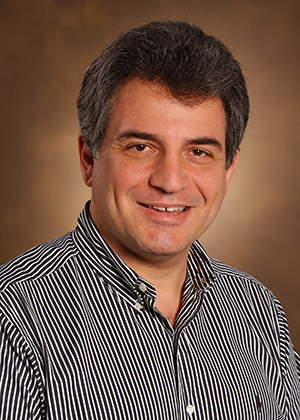
Ron Emeson retires from decades-long career devoted to science, students, and service
Emeson was one of the first scientists to explore a newly discovered biological process called RNA editing, a mechanism by which cells can subtly change the function of proteins and non-coding RNAs to fine-tune their activities. His team’s pioneering research made seminal contributions to the field and laid the foundation for understanding how RNA editing contributes to the regulation of neuronal function. Reflecting on his career, Emeson said the best things have been “the science, the students, the opportunity to work with talented colleagues, and the IACUC.” Read MoreJan. 6, 2026
-

National Cancer Institute Laboratory of Genome Integrity Chief André Nussenzweig to deliver Apex Lecture on Dec. 15
Laboratory of Genome Integrity chief André Nussenzweig will present the Vanderbilt School of Medicine Basic Sciences Apex Lecture on Monday, Dec. 25, 2025. Read MoreDec. 2, 2025
-
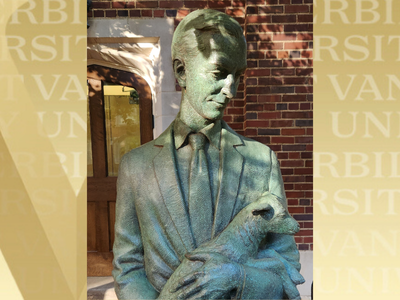
Three fainting goats and a magic cow: A Thanksgiving conversation
Long-time collaborators and friends Chuck Sanders and Dr. Al George sat down for a Thanksgiving conversation focused on fainting goats, sacred cows, and disordered muscles in humans. Read MoreNov. 19, 2025
-
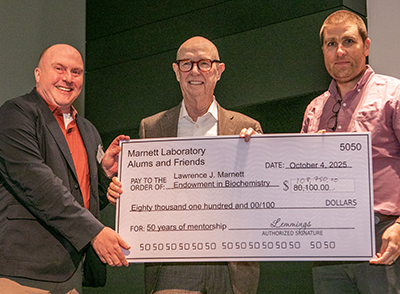
From Lab to Legacy: Marnett’s Trainees Gather to Toast a Life in Science and Service
In a heartwarming tribute to a remarkable career, more than 70 of his former graduate students and postdoctoral scholars recently traveled from across the globe for a three-day festivity on Oct. 3–5 to celebrate Larry Marnett’s 50 years in academia. Read MoreOct. 20, 2025
-
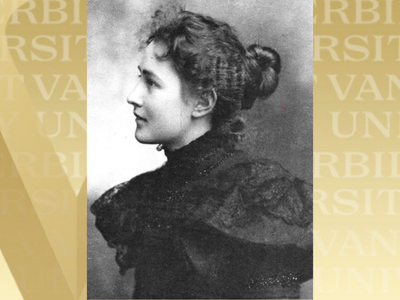
A Halloween interview with Maud Menten
Tune in to Professor of Biochemistry Chuck Sanders' yearly Halloween interview, this year featuring Maud Menten, co-creator of the Michaelis-Menten enzyme kinetics equation. Read MoreOct. 20, 2025
-

Gravity is not our friend: A summer postcard
Professor of Biochemistry Chuck Sanders reflects on a summertime backpacking trip in the Wind River Range of Western Wyoming. Read MoreAug. 21, 2025
-
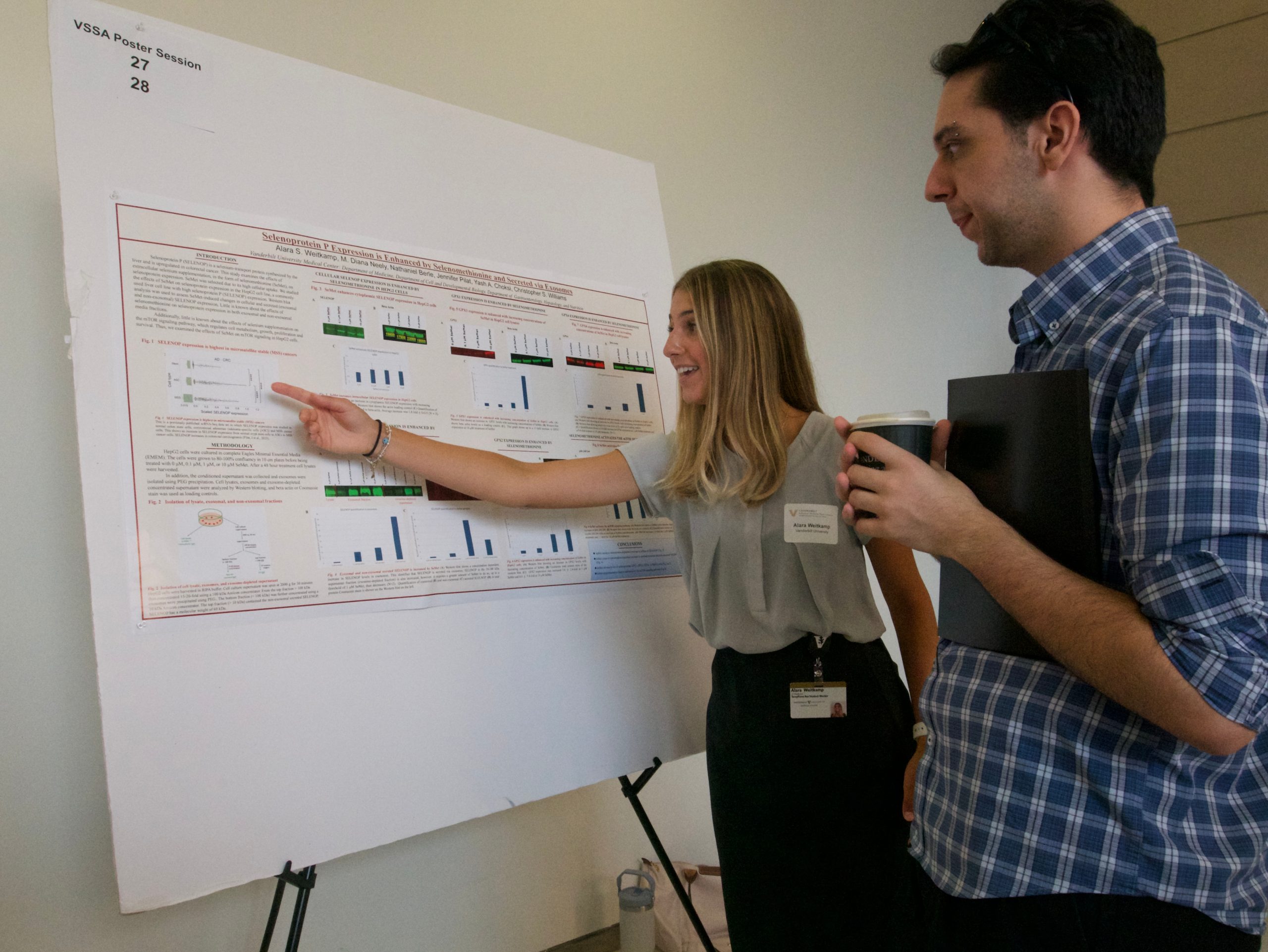
Vanderbilt Summer Science Academy symposium showcases undergraduate research
Vanderbilt University welcomed 48 undergraduate researchers from 30 institutions across the country to present their work at the 2025 Vanderbilt Summer Science Academy Poster Symposium. Read MoreAug. 11, 2025